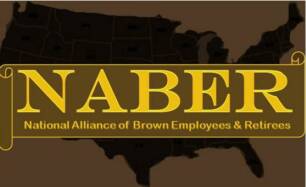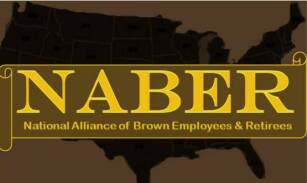
An Organization Formed To Share Information,
Promote The Interests, And Assist With The Challenges
Of Being A Current Or Former UPS HOURLY Employee.
UPS Challenges The Class Action Status
Of ADA Suit Brought By Scott & Scott
In an effort to get this class action thrown out before a new ADA law become effective on January 1, UPS is trying to decertify this as a class action lawsuit.
SEE LINK
ADA (American with Disabilities Act) mandates that a company make "reasonable accommodations" to employees unable to continue at their current job because of injury or illness.This case is a landmark case in employment law that may well interprete the current and incoming ADA laws. The central issue is UPS's unwritten policy of "100% cured" before injured or ill UPSers can return to work. Few workers receive job reassignment or any accommodation to their job. This appears to be in complete disregard to the law.
UPS's lawyer admits there are tens of thousands of (current and former) UPSers involved. He claims that there is billions of dollars involved. Does that mean that when it is expensive, companies don't have to follow the law? How difficult is it for workers stripped of their job?
It is of note that former Supreme Court Justice Sandra Day O'Connor is one of the judges hearing the case. UPS's lead attorney Mark A. Perry clerked for O'Connor in '93-'94. Justice O'Connor also wrote the majority opinion in Murphy v. UPS where UPS prevailed. Murphy v. UPS set an importent precident for ADA cases and is cited as a reason that the U.S. Congress updated the ADA law. Reasonable people would question whether O'Connor should recuse herself.
Co-council for UPS is Eugene Scalia, the son of O'Connor's former Supreme Court colleague, Justice Antonin Scalia. UPS has brought significant clout to this case which indicates how important it is (in the company's eyes) not to make accomodations for injured employees. Tens of thousands of employees who are too injured or too ill to continue working at their jobs, yet this somehow flys under the radar of the mass media.












Disclaimers
N.A.B.E.R. Inc. is not anti-UPS or.anti-Teamster. but rather is dedicated to persuading both organizations to honor not only the letter but also the spirit of their agreements with UPS employees and retirees.
The information on this website does not constitute legal advice. The law is constantly changing, and we make no warranty of the accuracy of information on this site or any site to which we link. If any information on this website is incorrect, please inform us and we will correct it.
N.A.B.E.R. Inc. is not in any way, shape or form affiliated with "VICTIMS OF UPS"
National Alliance of BROWN Employees and Retirees Inc.is a not for profit corporation in the State of Illinois
FAIR USE NOTICE
This site contains copyrighted material the use of which has not always been specifically authorized by the copyright owner. We are making such material available in our efforts to advance understanding of environmental, political, human rights, economic, democracy, scientific, and social justice issues, etc. We believe this constitutes a 'fair use' of any such copyrighted material as provided for in section 107 of the US Copyright Law. In accordance with Title 17 U.S.C. Section 107, the material on this site is distributed without profit to those who have expressed a prior interest in receiving the included information for research and educational purposes. For more information go to: http://www.law.cornell.edu/uscode/17/107.shtml. If you wish to use copyrighted material from this site for purposes of your own that go beyond 'fair use', you must obtain permission from the copyright owner.
© Copyright N.A.B.E.R. Inc. 2004-2017
SURVIVAL @ UPS
GUIDE TO WORKPLACE LAWS
BENEFIT APPEALS
HOW TO DO THEM
THE LARGEST SEXUAL HARRASSMENT SUIT EVER WON AGAINST UPS
BEHIND THE BROWN CURTAIN
AVOIDING HARRASSMENT & WINNING GRIEVANCES
HEALTH STUDY ON PACKAGE CAR DRIVERS
-------
"The success of the company has been because we were not working for money alone." -Jim Casey, founder of UPS
NEWSLETTER
UPS Whiteboard Music
Is NABER the only ones that think it's weird that the music behind the Whiteboard commercials is the intro to a song by the musical group, "The Postal Service"? The song is "Such Great Heights" and is available on Itunes.
Americans With Disabilities Act (ADA) Coverage Increases
In cases brought to enforce the 1990 ADA law, disabilities has been narrowly defined by the courts. Diabetes and hypertension (high blood pressure) had not been covered even though it disqualified individuals from certain jobs. UPS had been instrumental in obtaining this narrow interpretation by taking Murphy v. UPS to the U.S. Supreme Court.
Briefly, that decision allowed UPS to fire a mechanic because of his inability to obtain a DOT physical card, because of hypertension. UPS further argued that because his condition did not have a major effect on his daily life, Murphy was not covered by ADA. Other court decisions similarly decided that diabetes was not a disability.
Many of you are aware that insulin dependent diabetes are not allowed DOT cards to drive and UPS terminates employment of those drivers. They do not make reasonable accommodations to move individuals into appropriate jobs. Years ago, however, UPS did find other positions for these UPSers. Many were long-time employees and near retirement age.
This injustice is about to be remedied. In January, the ADA Amendment Act (ADAAA) will become law. ADAAA will reverse Murphy v. UPS and other similar cases. Congress will define what they intended in the original law that the courts modified. “Majority Leader Steny Hoyer (D-Md.) said that because of Supreme Court decisions that interpreted the ADA's coverage in an unduly restrictive manner, the full promise of the 18-year-old legislation has not been realized. “Our intent was to be inclusive; civil rights bills are meant to be interpreted broadly,” said Hoyer, who was a key player in enactment of the original ADA in 1990.” (SOURCE:
Since previous Supreme Court decisions are to be reversed, it would seem that this law is retroactive to the effective date of the original ADA law. It remains to be seen how this will be played out in court. Seek your own legal council to determine your rights under the new law.
Hopefully, this new law will end the shameful termination of employees who are fully capable of working but have the misfortune of illnesses that don't allow them to continue to drive professionally.
Former UPS worker awarded $2.63 million
A federal jury last month to award Jones a whopping $2.63 million in damages, including $2 million in punitive damages.
“We were able to show the outrageous and brazen fashion in which UPS retaliated against Mr. Jones through evidence of, among other things, repeatedly and admittedly sabotaging his efforts to return to work after he filed a workers’ compensation claim,” one of Jones’ attorneys, Frederic D. Deay II, said in an e-mail." SOURCE

The United Parcel Service Inc. said it’s cooperating with the U.S. Justice
Department in an antitrust investigation of its policies on the use of shipping consultants.
“We are going to cooperate fully with their inquiry,” UPS spokeswoman Susan Rosenberg said about the Justice Department investigation in a telephone interview today. Department spokeswoman Gina Talamona declined to comment on the inquiry.
The probe was disclosed in a lawsuit filed by Portland, Oregon-based AFMS LLC, a privately held shipping consultant, which alleges that UPS and Federal Express Corp. conspired to exclude third-party shipping consultants.
Rosenberg said that FedEx and UPS compete aggressively and that any assertion that they conspired was "a bit outrageous."
UPS Cooperating With U.S. Antitrust Probe Into Shipping-Consultants Policy
United Parcel Service Inc., Atlanta, contributed $3.2 billion in cash to its U.S. pension plans in the last two months, said Norman Black, UPS spokesman. The company contributed $1.2 billion in January and $2 billion in December. As a result of the contributions, each of the company's U.S. defined benefit pension plans is now more than 100% funded, Mr. Black said. The amount of the overfunding was unavailable. The new funding “will substantially reduce contributions in the years to come,” Kurt P. Kuehn, CFO, treasurer and senior vice president, said Tuesday in a conference call on the company's financial results. UPS didn't disclose its current pension assets and liabilities. “UPS like most companies with defined benefit plans will experience higher pension expense in 2011, as a result of lower discount rates and the amortization of the 2008 market losses,” Mr. Kuehn said in the transcript. UPS didn't disclose the expected pension expense for this year. “The benefits of our recent pension contributions will help offset the impact but not totally eliminate it,” he added in the transcript. In December, UPS contributed $2 billion to its pension plans, financing the funding by selling 10- and 30-year notes, Mr. Black said. Given low levels of interest rates, we felt it was financially prudent to issue debt to prefund our pension plans,” Mr. Kuehn said in the transcript. UPS' U.S. plans had $15.3 billion in assets and $17.7 billion in liabilities, while its non-U.S. plans had $481 million in assets and $575 million in liabilities, all as of Dec. 31, 2009, according to its most recent 10-K, filed Feb. 26, 2010.
UPS wraps up full funding with $3.2 billion contribution
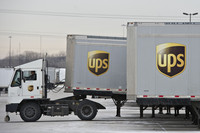
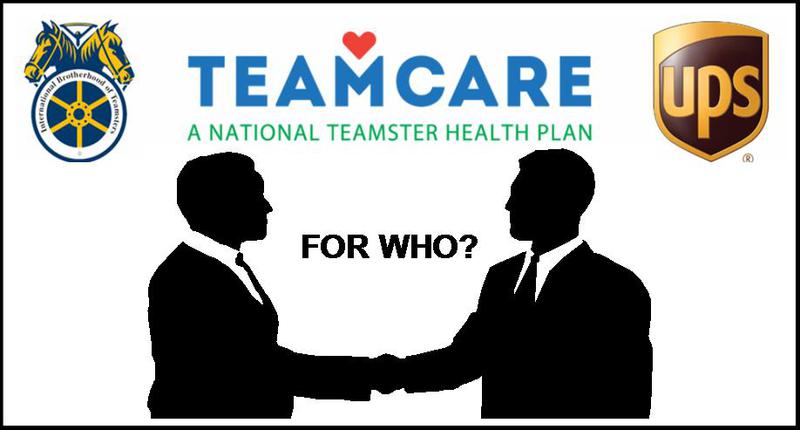
UPS retirees brace for pension cuts
Some 8,737 United Parcel Service Inc. (NYSE: UPS) retirees could soon see their pension checks cut. The
reason some UPS retirees receive their pensions from the cash-strapped Central States Pension Fund,
which covers hundreds of thousands of workers from different companies, reports CNNMoney. The fund says
it needs to make cuts in order to keep from running out of money, the network adds. A former UPS truck driver
who retired in 2007 after more than 30 years on the job told CNN his monthly pension check of $2,903 will be
cut to $1,452 assoon as July, if the Treasury Department approves the plan.
Atlanta-based UPS left the Central States fund in 2008 as a way to save money and provide retirees with better benefits, but took only current workers with it, CNN reports. UPS says it does not have a contractual agreement to cover UPS employees who had retired and were in the Central States fund prior to 2008.
Other pension matters
Earlier this month, UPS reported its Canadian arm, UPS Canada, inked a deal with the Canada Council of Teamsters that will provide “wage increases, enhancements to the pension plan as well as an increase in benefits” to nearly 7,000 Canada-based employees. The five-year deal started Aug. 1 and will continue through July 31, 2020, Atlanta Business Chronicle reported.
In August, Atlanta-based consumer products giant Newell Rubbermaid Inc.(NYSE: NWL) said in a Securities and Exchange filing it would will offer 3,300 former employees who have deferred vested benefits under the company’s tax-qualified pension plan a one-time election to take a lump sum distribution worth the present value of their benefits by the end of 2015.
Carla Caldwell - Morning Edition Editor Atlanta Business Chronicle
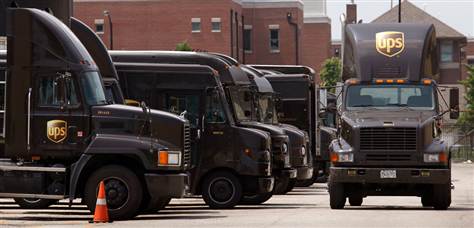

Dear Brown employees and retirees,
By now you have probably heard about the Central States Pension Plan. Central States has filed an application with the Treasury Department to receive permission to cut many retirees’ pension benefits. The International Brotherhood of Teamsters has already submitted comments to the Treasury urging the Department to deny the Central States application and protect retirees’ earned benefits.
Currently, Senator Peters and Representative Debbie Dingell are leading letters in their respective legislative chambers to the Treasury asking the Department to reject the Central States plan to cut retiree benefits. The letters face a rapidly approaching deadline, so we need your assistance to encourage your Senators and Representative to add their name. Take Action Now!
You can take action here and send an email to your members of Congress or you may call the Teamsters Pension Protection Hotline at 1-888-979-9806 to be connected directly to the offices of your members of Congress and let them know how much this issue means to you.
Our pension fund are not in much better condition then Central States. It's not a matter of if, but when will we end up in their situation....then what? Don't think it can't happen to you! We need to do what we can to stop this travesty from happening right NOW!
Sincerely,
National Alliance of Brown Employees & Retirees
Generates Highest-Ever 4Q EPS of $1.57, up 26%
◦4Q Double-Digit Operating Profit Growth and Expanded Operating Margins in all Three Segments
◦4Q Revenue Dampened by Changes in Fuel and Currency
◦2015 EPS up 14%, Reaches All-Time High of $5.43
◦Record International Operating Profit of $2.2 Billion in 2015, Led by the Europe Region
◦Announces Full-Year 2016 EPS Guidance of $5.70 to $5.90
UPS Delivers Peak Profits for 4 Quarter
NEW YORK (CNNMoney) -- UPS earned more than $3 billion last year. But 8,737 of its former workers could see their pension checks cut next summer.
The problem is that some UPS retirees receive their pensions from the cash-strapped Central States Pension Fund, which covers hundreds of thousands of workers from different companies. That fund says it needs to make cuts in order to keep from running out of money.
Jim Dopp, 63, is one of the former UPS truck drivers. He retired in May of 2007 after more than 30 years on the job with a monthly pension check of $2,903. But last month, he received a letter saying his check could be slashed in half -- to $1,452 -- as soon as July, if the Treasury Department approves the plan. The real kicker is that UPS would've covered the cuts made to his pension if Dopp had retired just eight months later.
Here's why UPS won't pay
The Central States Pension Fund used to administer pension benefits to a group of unionized UPS drivers, but the company left the fund in 2008 as a way to save money and provide retirees with better benefits. It set up its own pension fund, but only took current workers with it. Any UPS drivers who had already retired would still be covered solely by the Central States fund. "We do not have a contractual obligation to cover supplemental benefits for those UPS employees that had retired and were in the Central States fund prior to 2008," a UPS spokesman told CNN Money.
UPS paid $6.1 billion in order to exit the fund. That should have covered the pension costs for UPS workers in the Central States fund that retired beforehand, including Dopp. But the fund has been hit hard financially by the aging workforce. It now has five retirees for each worker. And the deregulation of the trucking industry forced many of its member companies into bankruptcy. Unlike UPS, which paid billions of dollars to cover its workers when it left the fund, some of the bankrupt companies couldn't pay up. So now Central States is making cuts to most of its participants' benefits, regardless of which employer they worked for.
"UPS regrets that economic challenges and other conditions have resulted in Central States administrators choosing to propose a difficult restructuring that will potentially adversely impact thousands of retired UPS employees," the spokesman said.But the company has already made "substantial" payments to fund its former workers' retirements, he added.
Central States would be the first to make cuts
The fund wouldn't have been allowed to cut current retirees' benefits, legally, without a federal law that passed in December. Not everyone in the fund is seeing the same size cut to their pension. Those over 80, on disability, or receiving a spousal death benefit will not see their pension checks cut. But retirees whose employers left the fund and did not pay what was due on their behalf will see the most severe cuts, according to a provision in the law.
The Treasury Department will have the final say on whether the cuts are fair, and necessary in order to avoid insolvency. The agency has tapped attorney Ken Feinberg, who's known for overseeing the 9/11 victim compensation fund, to review the plan. Feinberg has about six more months before he must either approve or reject the fund's proposed cuts.
"It's very sad that anyone has to see their pension cut, but we feel that it's not right that a profitable company like UPS isn't doing right by their employees," said Debbie Dopp, Jim's wife. She's a high school teacher, and will be putting off her retirement to make up the difference if her husband's pension check is cut. Their son will be entering college in 2017, and they'd like to help with the cost.
Pension Cuts ???
